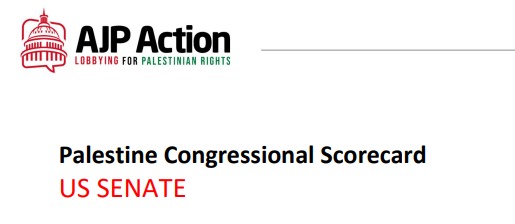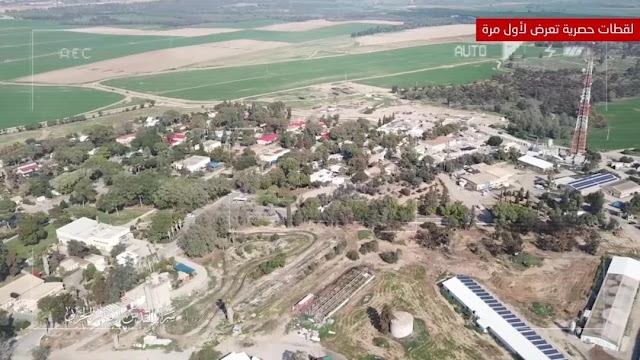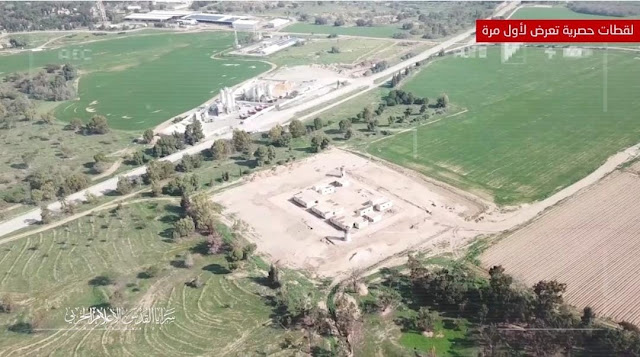NGO Monitor: The UN Commission of Inquiry’s Second Report: The Continued Assault on Israel
Failure to Address Commissioners’ AntisemitismAt the United Nations, Israel Becomes the Outlaw when Palestinians Reject Peace
In issuing its second report, the members of the COI ignored the numerous condemnations of the antisemitic statements they had made since the COI began.
In June 2022, speaking before the UN Human Rights Council, Commissioner Chris Sidoti appeared to trivialize the International Holocaust Remembrance Association (IHRA) consensus-building definition of antisemitism by dismissing it as “the definition of antisemitism promoted by the government of Israel, and its GONGOS.” He contended that “accusations of antisemitism are thrown around like rice at a wedding,” and claims that such accusations “legitimize” antisemitism.
In July 2022, Commissioner Miloon Kothari also made antisemitic comments on a podcast, claiming that the “Jewish lobby” controls social media and questioned whether Israel should have UN membership. In a letter to UNHRC President Federico Villegas, Pillay refused to condemn Kothari’s remarks, stating his comments “have deliberately been taken out of context…[and] deliberately misquoted.”
Dozens of countries, as well as UN Special Rapporteur Ahmed Shaheed, and HRC President Federico Villegas condemned these remarks. (Read NGO Monitor’s letter to United Nations Human Rights Council President Federico Villegas calling on him to initiate an assessment of the UNHRC’s Commission of Inquiry on Israel for violations of the mandate and UN codes of conduct as well as NGO Monitor’s joint letter to the UNHRC President calling for the removal of the Commissioners due to their antisemitic biases. NGO Monitor has also thoroughly documented the Commissioners’ prior anti-Israel biases and their links to Palestinian NGOs in detailed reports.)
Nevertheless, no punitive action was taken against the COI or its commissioners, and the COI report made no mention of the controversy. As a result, following the presentation of the report, many countries, including Albania, Bulgaria, Czech Republic, Federated States of Micronesia, Germany, Guatemala, Hungary, Liberia, Marshall Islands, Palau, Republic of Nauru, and the United States, again condemned the antisemitism exhibited by the Commissioners. Many of these countries also denounced the inaction of the United Nations to repudiate these statements or remove the Commissioners from their positions.
Once again, Navi Pillay ignored this glaring criticism, and made several false and dismissive statements in response to the State remarks. Pillay falsely claimed, “This has been dealt fully by the President of the Human Rights Council, who is the proper authority to clear up criticism of the mandate and clear up criticism of those he selected for appointment as commissioners. So I do encourage you to look at the President’s website on that.” To date, the President has taken no action. Pillay also rejected claims of antisemitism, stating that “I’m 81 years old now, and this is a very first time I’ve been accused of antisemitism. In my own country, that will not be received well because everybody knows the role I played, and similarly with the other two commissioners. So let me make absolutely clear, we are not antisemitic.” These remarks represented yet another attempt by Pillay to whitewash the clear antisemitism expressed by the Commissioners and to absolve herself and the COI from taking the necessary concrete steps to address the deep-seated problems.
First and foremost, the COI claim relies on ignoring that Israel has, in fact, repeatedly tried to end the occupation. Nowhere in the COI report is there any mention of the repeated offers of statehood made by Israel, including in 2000 at Camp David, and then the even more generous 2008 offer by then Israeli Prime Minister Ehud Olmert.Stephen Daisley: Sunak should acknowledge Jerusalem as Israel’s capital
How does one square these offers with the claim that Israel has “no intention of ending the occupation?” How does one square Israel’s agreement to the Oslo Accords, which gave a Palestinian entity autonomy over parts of the West Bank for the first time ever in history, with this charge? Any serious legal inquiry would have to account for and overcome these facts to come to the conclusion that the COI reached .
Second, the claim relies on ignoring all the instances when Israel gave up land for peace, and even gave up land in the hopes of reaching peace. Far from Israelis being “covetous aliens” and Israel being an “acquisitive occupier,” as Lynk claimed while using openly antisemitic tropes in his final report, the Jewish state has repeatedly traded land captured in defensive wars back to states like Egypt and Jordan in exchange for lasting peace. As Israeli Prime Minister Yair Lapid’s recent statement at the UN General Assembly demonstrated, that is still Israel’s desire when it comes to the Palestinians, too. No amount of baseless, conspiratorial assertions by the COI that Israel only “uphold[s] the appearance of agreement” — with a two-state solution as part of a duplicitous strategy — can overcome this history.
This is particularly evident when considering Israel’s unilateral withdrawal from the Gaza Strip, which the COI only acknowledges to the extent necessary to absurdly accuse Israel of still “occupying” the territory. To admit that Israel completely uprooted not just its military, but also thousands of Israeli residents of Gaza, would require also acknowledging that many of the policies that the COI claims are designed to make Israeli occupation in the West Bank “permanent” are, in fact, quite capable of being overcome, just as they were in Gaza.
Third, and perhaps most telling, is that the claim relies on ignoring Palestinian rejectionism and maximalist demands. The entire narrative crafted by the likes of the COI members is that Israel alone bears responsibility. The fact that Israel prevailed in repeated wars of survival against invading Arab armies and decades of terror attacks that began long before the “occupation” started in 1967, does not square with the COI’s portrayal of pure Palestinian innocence and absolute Israeli malevolence. The COI has to conceal that the conflict persists in large part due to Palestinian rejectionism and refusal to accept the existence of a Jewish state in any part of the Land of Israel.
That is also why Palestinian leaders openly bragging about rejecting peace offers must go unmentioned, as with Mahmoud Abbas’ demand that “not a single Israeli” will be allowed to be part of a Palestinian state. It is why the COI cannot acknowledge that the Palestinian Authority (PA) arrests and tortures Palestinians for participating in peace workshops. It is why Hamas is rarely if ever mentioned — and no acknowledgement is made of its violent, antisemitic, and openly genocidal charter. The fact that the PA tells its people that the Palestine Liberation Organization’s Charter still calls for Israel’s destruction must also remain hidden.
Under Jordanian occupation, Jews were expelled from eastern Jerusalem and their synagogues burned, but under Israeli authority there are provisions to facilitate freedom of worship. This set-up is not particularly loveable. Jews are banned from praying on Temple Mount, the holiest site in Judaism, while Muslims are free to pray there. There are tensions. Clashes are not unknown. But on the whole it works.
The UK’s policy, one shared by the overwhelming majority of countries, is to deny recognition to this uneasy but enduring arrangement. We pretend that Jerusalem is not the capital of Israel because we fear doing otherwise would concede that international law, or at least the dominant reading of it, has failed as a conceptual framework in the most scrutinised conflict of modern times. We wish to see a viable Palestinian state in Judea and Samaria, Gaza and eastern Jerusalem and fret that acknowledging Israel’s capital would prejudice or hinder that.
This is an error born of a paradox. Mindful of its history in Palestine, Britain wishes to be uninvolved in the conflict but uninvolved in a way that aggrandises its status in the region. By withholding recognition of Jerusalem, we tell ourselves, the UK is advancing the cause of peace. Without wishing to sound like one of those ‘Britain is crap, ackshually’ historians, we are seriously overstating our swing in this part of the world. The Palestinian conflict with Israel will end when the Palestinians accept their own state alongside the Jewish state. Nothing we say or do is likely to influence them either way. This is their conflict, not ours.
Those of us who advocate recognition tend to do so in political, historical, moral, legal and, yes, emotional terms. But there is also a realist case. Under these terms, recognising Jerusalem is not about what Israel or the Palestinians want. It is about what the UK considers its foreign policy ought to be. What is in our interests? Some might argue that it is in our interests to be scrupulously even-handed and leave well enough alone. Even if that were true, the fact is that we are not neutral at present. Even as it refuses to acknowledge Israeli sovereignty in any part of Jerusalem, the UK government defines East Jerusalem as part of the ‘Occupied Palestinian Territories’. So our position is not one of balance or non-intervention. We have intervened in the conflict to say that East Jerusalem belongs to the Palestinians and West Jerusalem is up for debate.































.jpg)




